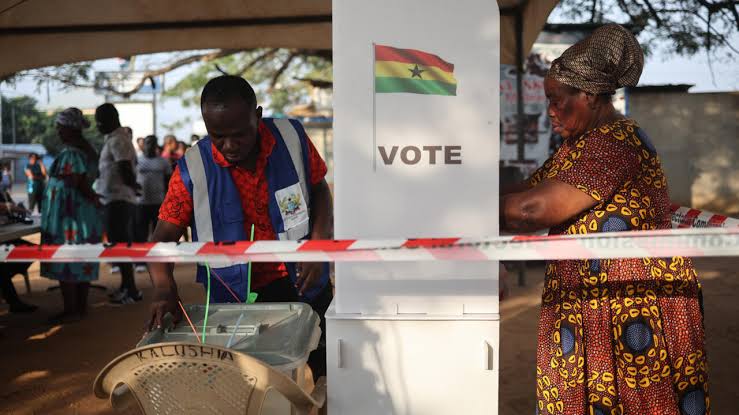Ghana’s general election has been marred by violence, with one person fatally shot and another injured at a polling station in Nyankpala.
The confrontation reportedly erupted when an opposition candidate tried to lodge a complaint but was confronted by supporters of the ruling party.
Authorities have arrested four individuals linked to the shooting, while soldiers were dispatched to maintain order in the area.
Elsewhere, voting proceeded peacefully, with Ghanaians queuing early to cast their votes. Nearly 19 million registered voters are participating in the election, which will determine a successor to President Nana Akufo-Addo, who has completed his two terms.
Among the leading candidates are former President John Mahama of the National Democratic Congress (NDC) and Vice-President Mahamudu Bawumia of the New Patriotic Party (NPP).
If elected, Bawumia would make history as Ghana’s first Muslim president.
Economic concerns dominate this election, as the country grapples with high inflation, a severe debt crisis, and rising living costs.
Inflation peaked at 54.1% in 2022, pushing thousands into poverty. While it has since eased, economic hardship remains a pressing issue for many voters.
In addition to selecting a president, voters in 275 constituencies are electing members of parliament.
Since 1992, only candidates from the NDC or NPP have held the presidency, and no party has ever won more than two consecutive terms.
This trend raises the stakes for both Mahama and Bawumia in their bids for power.
Other presidential contenders include Nana Kwame Bediako, a businessman popular with younger voters; Alan Kyerematen, a former NPP member who broke away to launch his campaign; and Nana Akosua Sarpong Frimpomaa, the sole female candidate in the race.
A second female candidate, Akua Donkor, passed away in October, though her name remains on the ballot due to the disqualification of her replacement.
Polls opened at 07:00 GMT and will close at 17:00 GMT. Results are expected within three days. To secure a first-round victory, a candidate must obtain over 50% of the vote; otherwise, the top two candidates will face a runoff later this month.
Amid the challenges, voters remain hopeful. Eighteen-year-old Serwaa Yeboah Joshebeth expressed her desire for more job opportunities, while 95-year-old Kojo Yeboah called for greater investment in education and youth employment.
Campaign rhetoric reflected the stakes. Bawumia argued his government outperformed Mahama’s administration despite economic difficulties, while Mahama promised a “Ghana of opportunity, prosperity, and justice for all.”
As Ghanaians await the results, the election represents both a test of stability and a pivotal moment for the country’s future.
